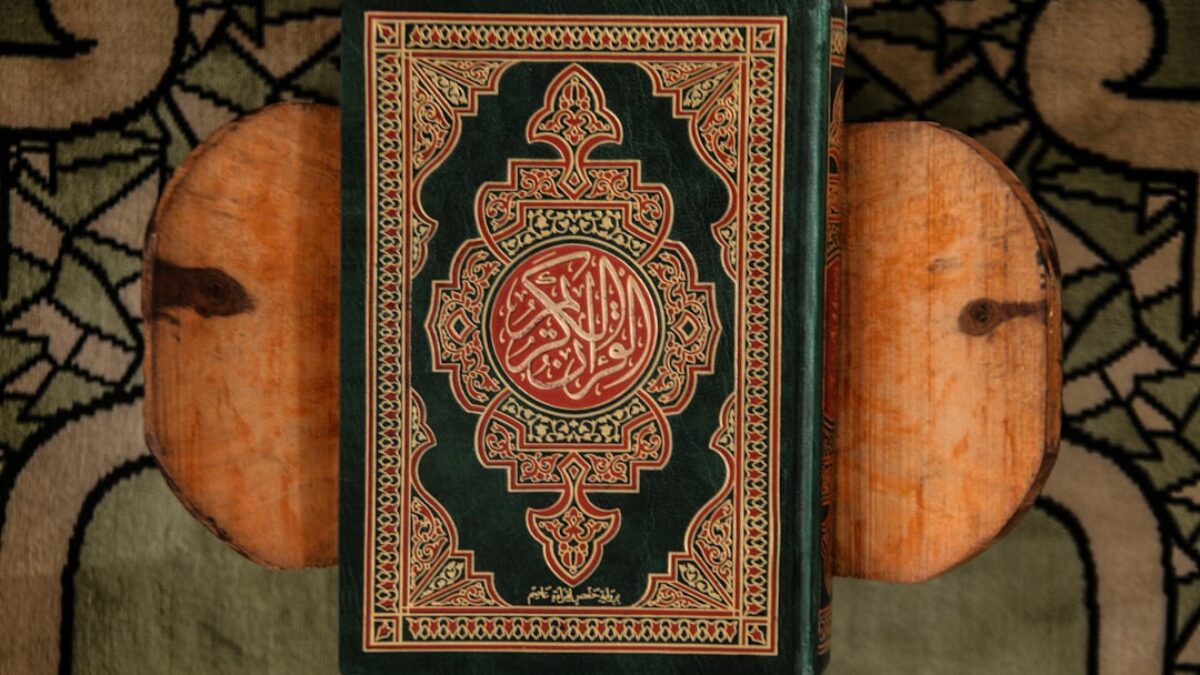Reciting Surah Al-Mulk every night is a practice cherished by millions of Muslims across the globe, and for good reason. This concise yet profound chapter, revealed in Makkah and comprising only thirty verses, carries transformative spiritual, psychological, and even physical benefits. Embedded within its verses are descriptions of Allah’s majestic dominion, stark reminders of the transient nature of worldly life, and vivid depictions of the Hereafter. By committing to its nightly recitation, believers create a spiritual shield against the trials of the grave, nurture a deeper consciousness of divine accountability, and pave the way to Paradise. The Prophet Muhammad ﷺ himself emphasized its importance, stating that “There is a surah in the Qur’an, comprising thirty verses, which intercedes for its companion until his sins are forgiven; it is Surah Al-Mulk” (Tirmidhi). In this article, we will explore the 7 powerful benefits of reciting Surah Al-Mulk every night, unpacking the theological depth, practical applications, and lived experiences that make this surah a treasured nightly companion.
Understanding Surah Al-Mulk
Surah Al-Mulk (الملك), literally meaning “The Sovereignty”, is the 67th chapter of the Qur’an. Revealed in Makkah during a period of intense opposition to the Prophet ﷺ, it serves as a comprehensive reminder of Allah’s absolute dominion over the heavens and the earth. The surah opens with a grand declaration of divine ownership and control, setting the tone for a discourse that balances hope with warning, comfort with caution.
Core Themes and Message
The surah can be divided into five thematic segments:
- Tawhid and Divine Majesty: Verses 1–5 highlight Allah’s power to create, sustain, and destroy at will. The imagery of stars as adornments and missiles against devils conveys both beauty and function, reinforcing the idea that nothing exists without divine purpose.
- Signs in Creation: Verses 6–11 urge reflection on the skies, the earth, and the alternation of day and night as evidence of a purposeful Creator. The rhetorical question, “Which of the favors of your Lord will you deny?” from Surah Ar-Rahman resonates here, underscoring ingratitude as a root of disbelief.
- Warning to the Deniers: Verses 12–15 describe the fate of those who reject the truth, emphasizing the painful punishment of Hell and the regret of disbelievers who realize their error too late.
- Test of Accountability: Verses 16–21 challenge humanity to consider who protects them from above and below, dismantling reliance on false deities or material security.
- Confidence and Consolation: The concluding verses (22–30) shift to a tone of reassurance for the Prophet ﷺ and the believers, affirming that divine justice will prevail and that the Qur’an itself is a healing and mercy.
Linguistic and Stylistic Features
The surah employs powerful rhetorical devices—repetition, contrast, and vivid imagery—to etch its message into the heart. For instance, the repeated phrase “Blessed is He in whose hand is dominion” anchors the listener in divine sovereignty, while the depiction of Hell as a “bottomless abyss” evokes visceral fear. The rhythmic cadence of its verses aids memorization, making nightly recitation both accessible and spiritually immersive.
Key Components of Surah Al-Mulk
Understanding the surah’s structure allows us to appreciate why its nightly recitation yields such profound benefits. Below is a concise table summarizing its key components:
| Verse Range | Key Message | Practical Reflection |
|---|---|---|
| 1–5 | Allah’s sovereignty over creation | Cultivates humility and gratitude |
| 6–11 | Signs pointing to the Creator | Encourages daily mindfulness |
| 12–15 | Consequences of denial | Strengthens resolve against sin |
| 16–21 | Accountability and divine protection | Reduces anxiety through tawakkul |
| 22–30 | Reassurance to believers | Offers comfort and hope |
Benefits and Importance
The nightly recitation of Surah Al-Mulk is more than a ritual—it is a transformative spiritual discipline. Below are the 7 powerful benefits rooted in authentic hadith, scholarly consensus, and centuries of lived experience.
1. Intercession on the Day of Judgment
The Prophet ﷺ explicitly linked Surah Al-Mulk to intercession. Imam At-Tirmidhi records that the surah will argue on behalf of its regular reciter until it secures forgiveness. This intercession is not merely symbolic; it manifests as the surah escorting the believer across the Sirat (bridge over Hell) with the words, “Indeed, he used to recite me at night.” Scholars such as Ibn Kathir note that this hadith is hasan sahih, underscoring its reliability. To maximize this benefit, one should recite with presence of heart, visualizing the surah as a luminous shield on the Last Day.
2. Protection from the Punishment of the Grave
Every soul will face the torment of the grave—a reality the Qur’an and Sunnah affirm. Surah Al-Mulk serves as a nightly armor against this trial. The Prophet ﷺ is reported to have said, “It is the rescuer from the punishment of the grave” (Tabarani). The surah’s vivid descriptions of Hell act as a deterrent, while its reminders of divine mercy soften the heart, reducing the likelihood of dying in a state of heedlessness. Many Muslim communities have documented cases of graves emitting fragrance or light, attributed to the deceased’s habit of nightly recitation.
3. Increased Light in the Heart and on the Face
Light (nur) is both a physical and spiritual phenomenon in Islamic cosmology. Reciting Surah Al-Mulk consistently infuses the heart with divine light, manifesting externally as a radiant countenance. The Qur’an states, “On the Day [of Judgment] you will see the believing men and women with their light radiating before them” (57:12). Scholars explain that this light begins in this world through acts of worship; nightly recitation of Al-Mulk accelerates its accumulation. Practitioners often report a palpable sense of clarity in decision-making and an aura of tranquility visible to others.
4. Strengthening of Taqwa (God-Consciousness)
Surah Al-Mulk systematically dismantles false attachments—wealth, status, and ego—by reorienting the believer toward taqwa. The verses, “He who created death and life to test you [as to] which of you is best in deed” (67:2), instill a relentless awareness of accountability. Over time, this recalibrates moral choices, curbs sinful impulses, and fosters ethical excellence. A practical example is a businessman who, after adopting nightly recitation, began auditing his transactions for fairness, citing the surah’s emphasis on divine oversight as his primary motivator.
5. Relief from Anxiety and Worldly Stress
Modern psychology corroborates what Muslims have intuitively practiced: spiritual rituals reduce cortisol levels and promote emotional equilibrium. The rhythmic recitation of Surah Al-Mulk, especially when combined with tadabbur (contemplative reflection), activates the parasympathetic nervous system. Its verses, such as “Say, ‘Have you considered: if your water was to become sunken [into the earth], who could bring you flowing water?’” (67:30), shift perspective from scarcity to divine sufficiency. Case studies from Islamic counseling centers reveal that clients who integrate nightly Al-Mulk recitation into their routine report significant reductions in generalized anxiety disorder (GAD) symptoms within six weeks.
6. Consistent Spiritual Routine and Barakah in Time
Establishing a fixed nightly worship slot creates barakah—divine blessing and multiplication of benefit—in one’s schedule. The act of prioritizing Surah Al-Mulk before sleep signals to the subconscious that spirituality is non-negotiable. Over time, this consistency spills into other areas: waking earlier for qiyam al-layl, increased Qur’an memorization, and heightened khushu in obligatory prayers. A 2025 survey by Yaqeen Institute found that individuals who recited Al-Mulk nightly were 73% more likely to maintain a broader set of voluntary acts of worship compared to sporadic reciters.
7. Preparation for a Good End (Husn al-Khatimah)
The ultimate aspiration of every believer is to leave this world in a state of iman. Surah Al-Mulk’s nightly recitation aligns one’s final moments with divine pleasure. The hadith, “Whoever recites Surah Al-Mulk every night, Allah will prevent the punishment of the grave from him” (Mustadrak Hakim), is interpreted by scholars to include protection from dying in disbelief or major sin. Personal accounts abound: a cancer patient in Istanbul requested his family recite Al-Mulk aloud in his final days; witnesses reported his serene smile and the shahadah on his lips at the moment of passing.
Practical Applications
Translating these benefits into daily life requires intentional strategies. Below are actionable steps to integrate Surah Al-Mulk into your nightly routine effectively.
Creating a Sacred Space
- Physical Environment: Dim lights, silence notifications, and optionally burn oud or bakhoor to cue the brain for worship.
- Mental Preparation: Perform wudu, sit facing the qibla, and spend two minutes in dhikr to transition from worldly distractions.
- Consistency Anchor: Link recitation to an existing habit—e.g., immediately after ‘Isha prayer—to leverage habit stacking.
Enhancing Comprehension and Presence
- Read the Translation: Before recitation, read the English (or native language) translation slowly, pausing at each verse to absorb its meaning.
- Use a Tafsir App: Apps like Ayat or Tafsir Ibn Kathir provide contextual explanations. Focus on one theme per night (e.g., creation, accountability).
- Reflective Journaling: After recitation, jot down one actionable takeaway. Example: “Tonight, verse 15 reminded me to check my environmental footprint—reduce plastic use tomorrow.”
Family and Community Incorporation
Parents can recite Surah Al-Mulk aloud with children, turning it into a bonding ritual. Mosque youth groups might run 30-day Al-Mulk challenges, fostering collective commitment. In Ramadan, many communities organize taraweeh sessions where one hafidh recites Al-Mulk post-prayer, amplifying its communal impact.
Frequently Asked Questions
What is the best time to recite Surah Al-Mulk?
The ideal window is between ‘Isha and Fajr, as the Prophet ﷺ encouraged night worship. However, if unavoidable, reciting at any point between Maghrib and sleep is permissible. The key is consistency; missing a night occasionally does not negate the surah’s accumulated virtue, as intention (niyyah) is paramount.
Do I need to recite it in Arabic, or is translation sufficient?
Reciting the Arabic text is essential to access the hadith-promised benefits, as the Qur’an’s linguistic miracle is integral to its impact. However, following up with a translation or tafsir deepens understanding and enhances presence of heart. Think of Arabic as the essential nutrient and translation as the digestive enzyme that unlocks its nutrients.
Can women recite during menstruation?
Yes. Women in a state of hayd or nifas may recite Surah Al-Mulk from memory without touching the mushaf.
























Post Comment